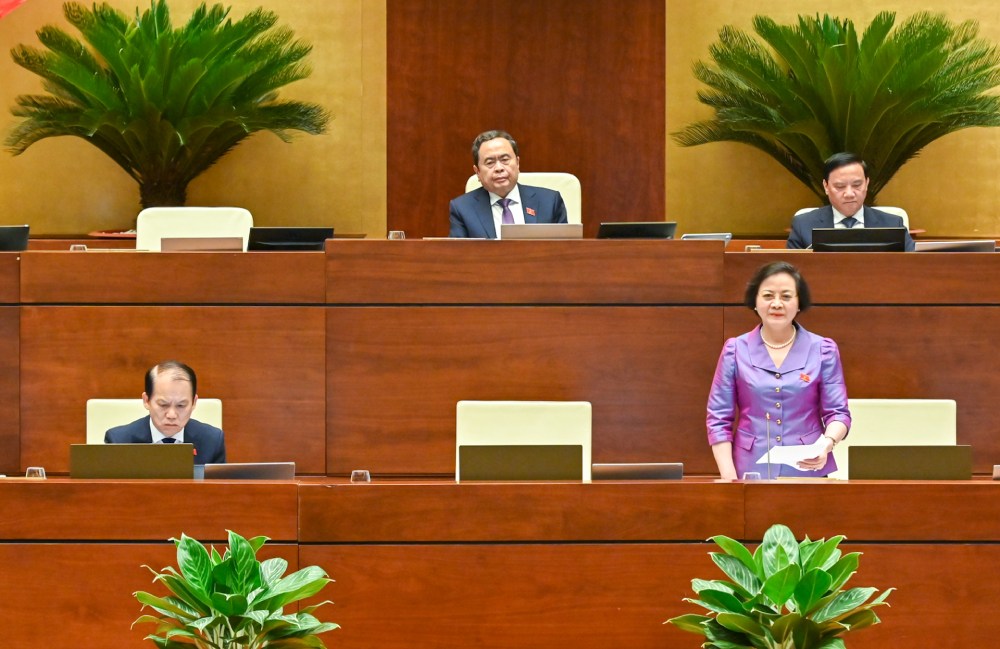On the afternoon of May 14, the National Assembly discussed in the hall the draft Law on Cadres and Civil Servants (amended). Minister of Home Affairs Pham Thi Thanh Tra explained and clarified a number of issues raised by National Assembly deputies.
The Minister of Home Affairs emphasized that the draft law establishes the legal basis for connecting cadres and civil servants at the commune and provincial levels. From there, build a common public service regime of the political system from the central to the grassroots level.
The goal is to meet the requirements of arranging administrative units and building a two-level local government. At the same time, implement the goal of restructuring cadres and civil servants, linking with job positions, improving the quality of the team.
The second major goal mentioned by the minister is to ensure unity, synchronization, and institutionalization of the Party's policies related to cadres and civil servants.

The Minister also explained the key contents, innovation, and breakthrough of the draft law. First is the relationship between job position and civil servant rank.
The draft law has established a civil service regime according to the principle of taking the job position as the center, foundation, and core to operate throughout the administrative apparatus.
Job positions dominate the entire "life cycle" of public sector human resource management with specific tasks such as determining staffing, allocating human resources, the only basis for recruitment, use, training, fostering, rewarding, paying salaries...
Meanwhile, the rank is only a technical auxiliary tool to determine the rank and professional qualifications in public service and is streamlined, flexiblized, and integrated into the competency framework description system suitable for job positions.
Compared to the current law, the minister affirmed that this is a new issue. Thus, civil service rank is no longer the current goal.
"Therefore, we decided to remove the promotion exam, eliminating the arrangement according to the current civil service order," the minister informed.
Minister Pham Thi Thanh Tra reiterated that the promotion process of each civil servant will go from cadre, to specialist, main specialist, then senior specialist. This process can take 9-10 years for civil servants to be appointed to positions.
On the contrary, when regulated as in the draft law, it will ensure flexibility and dynamism in the process of using civil servants. Specifically, when recruiting for a job position, they will be placed in the corresponding rank.
Thus, if the candidate has the capacity and meets the position of senior specialist, it will correspond to this rank. This clearly shows that civil servants do not have to follow the order of the rank system as before.
Because of this novelty, the minister also considered seeing challenges for the drafting agency in designing specific regulations.
"Civil servants who want to survive must meet the requirements of the job position. Not only having a rank and eliminating the situation of holding a "seat" thanks to a rank, thereby creating motivation for cadres and civil servants to strive and perform public duties based on job positions in a professional direction", the minister emphasized.
Regarding the issue of talented people in public service activities, according to the minister, it is necessary to legalize the principle of considering talented people as a special subject in establishing a valuable civil service. All of these contents will be concretized by a Government decree.











